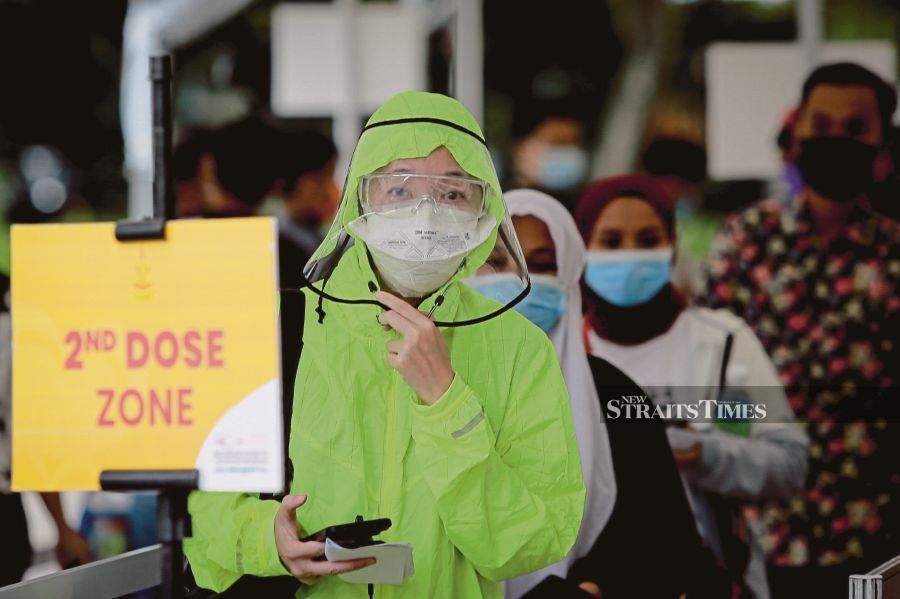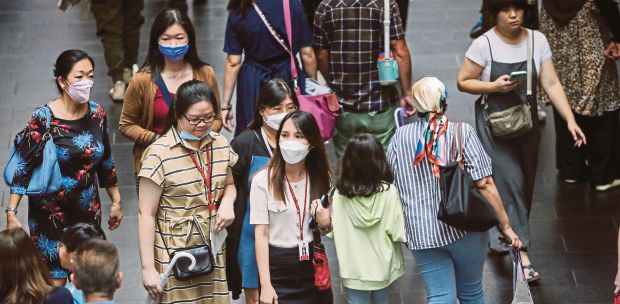KUALA LUMPUR: The emergence of new SARS-CoV-2 variants, such as the recently detected C.1.2. lineage in South Africa, suggests that the pandemic is far from over and that newer variants could potentially elude immune responses.
Molecular virologist Dr Vinod Balasubramaniam said the new C.1.2. variant, first identified in May this year, had captured scientists' attention because its mutation was almost twice as fast as observed in other global variants, including the currently predominant Delta.
"Scientists in South Africa are monitoring the new Covid-19 variant C.1.2. that has an unusually high mutation rate and has gradually increased in recent months.
"While most of South Africa's Covid cases were caused by the Delta variant (first detected in India), scientists are concerned about this variant because of how quickly it has mutated.
"It is between 44 and 59 mutations away from the original SARS-CoV-2 virus, first detected in Wuhan, making it to have mutated more than any other World Health Organisation-identified Variant of Concern (VOC) and Variant of Interest (VOI)," he told the New Straits Times.
The mutations, Dr Vinod elaborated, had been associated with an increased transmissibility and a heightened ability to evade antibodies. The C.1.2. variant has been detected in most provinces in South Africa, as well as a handful of other countries in Africa, Europe, Asia and Oceania.
The variant was flagged last week by the KwaZulu-Natal Research and Innovation and Sequencing Platform in a preprint study, which has yet to be peer reviewed.
The study, published on Aug 26 on medRxiv, described the C.1.2. as a "potential Variant of Interest (VOI).
According to WHO, a VOI is a SARS-CoV-2 variant with genetic changes that are predicted or known to affect virus characteristics such as transmissibility, disease severity, immune escape, diagnostic or therapeutic escape.
The study noted that the C.1.2. lineage evolved from C.1, one of the lineages that dominated the first wave of infections in South Africa.
"The C.1.2. contains multiple substitutions and deletions within the spike protein that have been observed in other VOC and are associated with increased transmissibility and reduced neutralisation sensitivity," the preprint study read.
medRxiv is a free online archive and distribution server for complete but unpublished manuscripts (preliminary reports of work that have not been certified by peer review) in the medical, clinical and related health sciences.

Dr Vinod, a senior lecturer (microbiology) at the Jeffrey Cheah School of Medicine and Health Sciences, Monash University Malaysia, said from the published preprint, it was evident that the C.1.2. might have more immune evasion properties than the prevalent Delta variant, based on its pattern of mutations.
However, he said, the full extent of the fitness and pathogenicity of the new variant was still very much under review.
Nevertheless, he said, people should not be overly alarmed at this stage and that variants with more mutations were bound to emerge further into the pandemic.
He said the C.1.2. still made up a very small but consistently growing portion of all of South Africa's cases and that it was not as widespread as other Covid VOC.
"At current stage, people shouldn't be overly concerned about the C.1.2. as it was already expected that variants with more mutations would emerge later in the pandemic.
"Besides, the C.1.2. accounted for just one per cent of samples in June and three per cent in July, versus 67 per cent of samples in June and 89 per cent in July for the Delta variant."
The Network for Genomics Surveillance in South Africa had, on Aug 30, issued an alert citing that the C.1.2 lineage possesses mutations within the genome that have been seen in other Covid-19 VOI or VOC, but also other mutations that are novel.
On what the new variant meant for vaccine effectiveness, disease outcome and transmissibility, the network said based on current understanding, partial immune escape may be possible, but despite this, vaccines would still offer high levels of protection against hospitalisation and death.
To date, WHO has not labelled the C.1.2. a VOI or VOC, which suggests that there isn't sufficient evidence of significantly increased transmissibility, disease susceptibility, and/or decreased effectiveness of public health and social measures, diagnostics, vaccines or therapeutics associated with the C.1.2.






